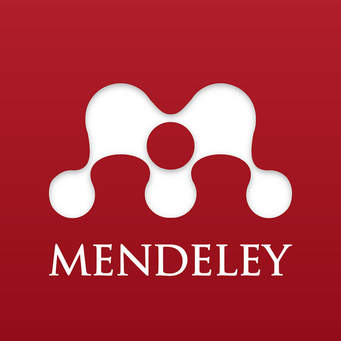THE EFFECT OF PARTICIPATORY MODEL ELUCIDATION ON THE PRACTICE OF SUPPLEMENTARY FEEDING (MP-ASI) ON GROWTH STATUS IN 12-24 MONTHS OF CHILDREN IN THE WEST LOMBOK DISTRICT
Abstract
Background: Counseling on the practice of feeding infants and children to mothers with babies 0-24 months is an educational effort that can produce community behavior to increase knowledge (Suharjo, 2003). Counseling often carried out in the community by nutrition officers and posyandu cadres about feeding practices usually uses the lecture method and question and answer discussion. However, the method above makes the target bored quickly and less interested, so the results are not optimal. Another method that can help is participatory counseling or adult learning (POD), which emphasizes that participants are directly involved and carry out two-way communication and share experiences from each participant (Kemenkes, 2015). One of these methods is the participatory extension method.
Research Methods: The study was carried out in the working area of the Kediri Health Center, West Lombok Regency, with 15 case groups and 15 control groups and had the same characteristics for three months, from September to November 2018. The study used a quasi-experimental method, pre-test post-test control group design. The data collected included data on characteristics, body weight, level of knowledge, and intake before and after giving participatory counseling interventions. Data analysis used an independent t-test to see the effect of participatory method counseling on children's growth status.
Research Result: The results showed that the education level of all respondents (100%) achieved primary education, namely Elementary School (SD) and Junior High School (SMP). The results showed that the samples' average weight gain or growth status, treatment, and control, was 0.4 Kg. There is a significant effect on the growth status of children aged 12-24 months for weight gain in both cases and controls. Both have increased. Viewed from the level of knowledge, most of the respondents have a sufficient level of expertise, and the increase in the knowledge possessed by respondents in the treatment is not better than control.
Conclusion: There is no effect of participatory method counseling on the level of knowledge of the case and control groups. Results counseling with participatory methods can change the eating patterns of children aged 12-24 months in the treatment group, as seen from the number, frequency, and variety of menus served by mothers of toddlers.
Suggestion: There needs to be a continuation of research with the same method, but the dependent variable is diet (amount, frequency, variety, and cleanliness)
Full Text:
PDFReferences
Almatsiers,S.2010.Prinsip Dasar Ilmu Gizi, Jakarta: PT.Gramedia Pustaka Utama.
Almatsier S, dkk. 2011. Gizi Dalam Daur Kehidupan, Jakarta : PT Gramedia Pustaka Utama.
Departemen Keasehatan RI. 2009. Daftar Kecukupan Gizi Yang dianjurkan (DKGA) Jakarta : PT.Bina Aksara
Mahaputri Ulva Lestari, Gustina lubis ddk., 2012. Hubungan Pemberian Makanan Pendamping ASI (MP-ASI) dengan Status Gizi Anak Usia 1-3 Tahun di Kota Padang Tahun 2012.
Kementrian Kesehatan 2014, Modul Pelatihan Konseling Pemberian Makan Bayi dan Anak, Jakarta
Risa Wargiana, Latifa Aini dkk. Hubungan Pemberian MP-ASI Dini dengan Status Gizi Bayi umur 0-6 bulan di wilayah kerja Puskesmas Rowo Tangah Kambupaten Jember. Jurnal Pustaka Kesehatan, Vol 1 (no1) , September 2013
Sulistyoningsih, Hariyani. 2012. Gizi Untuk Kesehatan Ibu Dan Anak. Graha Ilmu : Yogyakarta.
Supariasa, dkk. 2002. Penilaian Stus Gizi.Buku Kedoteran EGC. Jakarta
DOI: https://doi.org/10.32807/jgp.v7i1.353
Refbacks
- There are currently no refbacks.
Copyright (c) 2022 Jurnal Gizi Prima (Prime Nutrition Journal)

This work is licensed under a Creative Commons Attribution-ShareAlike 4.0 International License.
Address:
Jurnal Gizi Prima (Prime Nutrition Journal) 2656-2480 Kampus A Poltekkes Kemenkes Mataram, Jurusan Gizi, Jl. Praburangkasari Dasan Cermen Sandubaya Mataram.





